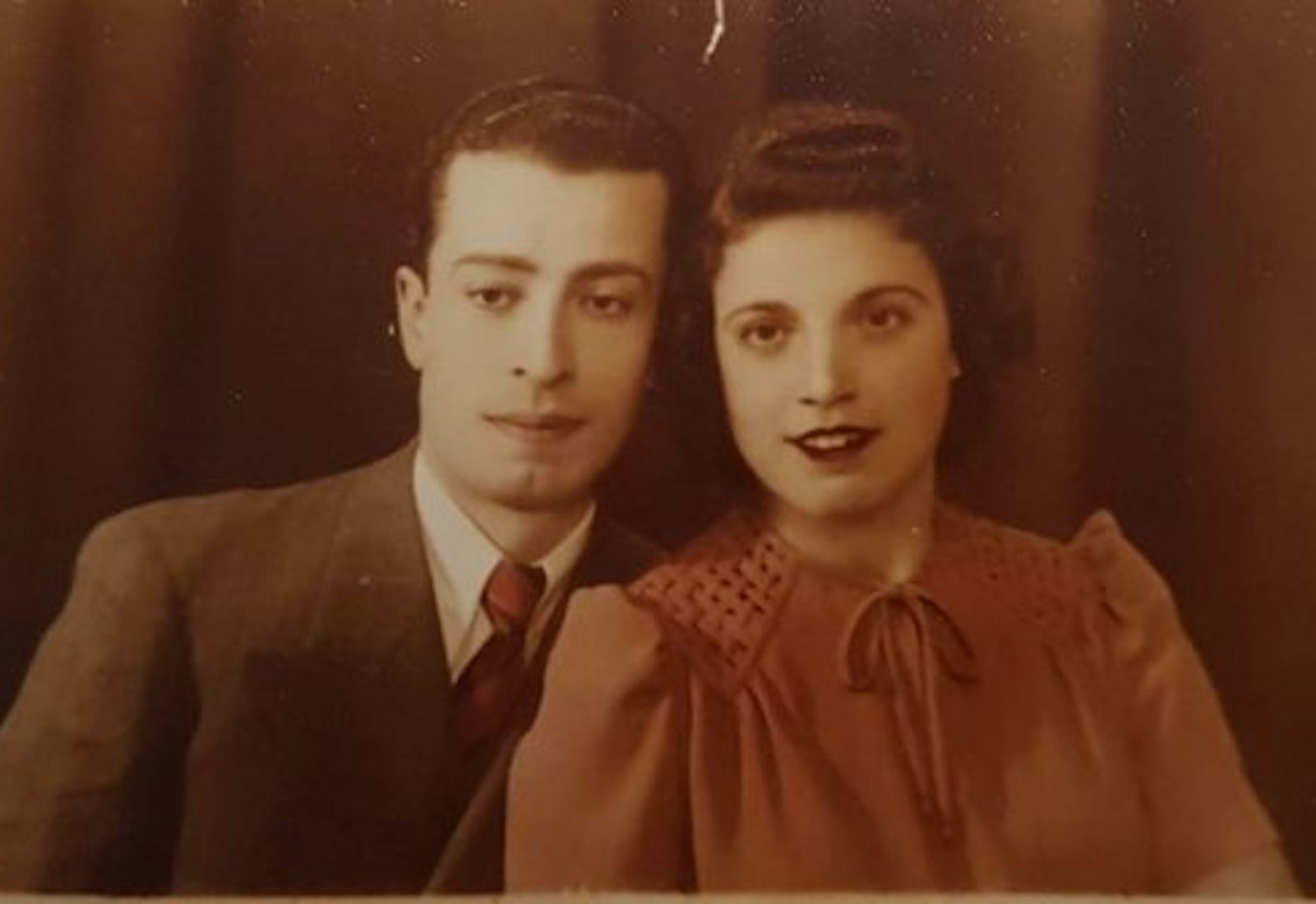Shared by Naomi Hazan


“It’s safe to say my mom hasn’t [cooked] for family holidays since I was 12,” jokes Naomi Hazan, a 24-year-old personal chef and kosher food columnist who has taken over those duties. For the holidays and shabbat, Naomi makes Syrian recipes like kibbeh garaz, or meatballs with rice stewed in garlic and cherries and lachmagine, a meat-topped flatbread.
Like many of us, Naomi learned these dishes from her grandmother — but a grandmother whose recipes she didn’t know well until she was almost 10. In 2004, Naomi’s family made aliyah, moving to Israel from New York, to be closer to her father Leon’s family in Holon, outside of Tel Aviv. Her grandmother Rashel and the family moved there from Aleppo, Syria in 1959, as anti-semitism grew in the city. “They had to flee in the middle of the night,” Naomi explains. They drove to Turkey to board a boat that carried them to Israel.
Settling in came with more challenges. The family had to learn a new language and “the basics of how to interact in a new country,” Naomi says. They moved into a largely Ashkenazi section of Tel Aviv and were taunted by neighbors for being from an Arab country.
But, “these people are tough in their blood,” Naomi adds. “My grandmother was definitely tough.” She held onto the family’s Syrian customs and recipes that called for sour tamarind and pungent allspice, and a heavy reliance upon mint and garlic. Naomi’s introduction to these recipes came when she arrived in Israel. Rashel, known as savta or grandmother in hebrew, would host regular family meals. “Sometimes, we were 40 grandchildren,” at the table, Naomi explains.
To feed the family, she would make a large pot of what the family calls bulrul, or bulgur with fried onions, vermicelli, and chickpeas. “It’s similar to that one pot meal that Italian grandmas would make, it never runs out,” Naomi explains. In Syria, it was a dish that housewives made on laundry day, when they were too busy to prepare something else. “A typical Syrian dishes can take hours,” she adds. To flesh out the meal, Rashel would also serve a yogurt sauce made with Persian cucumbers and mint, pickles, tehina, and two salads, one with cabbage and another with tomatoes and cucumbers. And there was always baklava, drenched in a sweet rosewater syrup that perfumed her kitchen.
In 2009, when Naomi’s family decided to return to the United States, she started to ask Rashel about her cooking. Like many grandmothers, Rashel didn’t have any recipes written down. In Brooklyn, she no longer had the weekly family meals, “so I had to teach myself,” Naomi adds. She started to buy cookbooks and to practice the recipes she remembered from Israel. “It took a couple of holidays, maybe a few years,” even, she says, to master Rashel’s recipes.
But, “now I’m pretty much a walking cookbook,” she says. Thankfully, she wrote these ones down for us.

